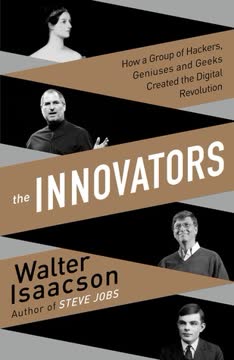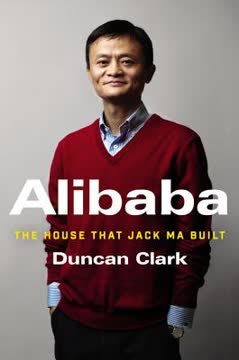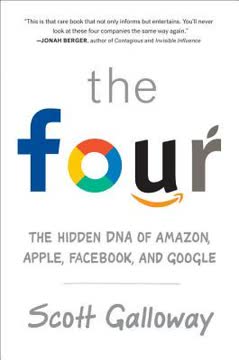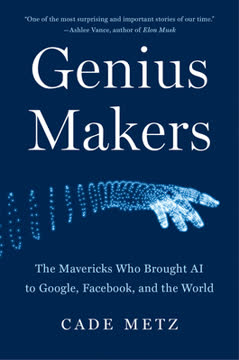Key Takeaways
1. Google's origins: From Stanford project to revolutionary search engine
"You can't understand Google unless you know that both Larry and Sergey were Montessori kids."
Montessori influence: Larry Page and Sergey Brin's educational background shaped Google's unconventional approach. The Montessori method encourages independent thinking and questioning authority, traits that became fundamental to Google's culture.
Stanford origins: Google began as a research project at Stanford University in 1996. Page and Brin developed BackRub, a search engine that analyzed the web's link structure to determine a site's importance. This innovative approach laid the foundation for Google's superior search results.
Early growth: Google quickly gained popularity among Stanford users and soon outgrew its university roots. The company officially incorporated in 1998 and moved to Susan Wojcicki's garage in Menlo Park, California. From there, Google's rapid expansion began, fueled by its ability to deliver more relevant search results than competitors.
2. PageRank: The algorithm that changed the internet
"PageRank has the benefit of learning from the whole of the World Wide Web."
Revolutionary concept: PageRank, developed by Page and Brin, revolutionized search by treating links as votes of importance. Unlike traditional search engines that relied solely on content analysis, PageRank considered the context and quality of links pointing to a page.
Scalability and improvement: As the web grew, PageRank became more effective. More links meant more data for the algorithm to analyze, leading to increasingly accurate results. This scalability gave Google a significant advantage over competitors.
Impact on the internet: PageRank's success transformed how people accessed information online. It made high-quality content more discoverable and influenced how websites were designed and optimized. The algorithm's principles continue to shape the internet landscape today.
3. AdWords and AdSense: Cracking the code on internet profits
"When the money keeps rolling in, you don't ask how."
AdWords innovation: Google's AdWords system, launched in 2000, revolutionized online advertising. It used an auction-based model where advertisers bid on keywords, with ads displayed based on relevance and bid amount. This approach ensured that users saw more relevant ads, increasing click-through rates and advertiser satisfaction.
AdSense expansion: In 2003, Google introduced AdSense, extending its advertising reach beyond search results to third-party websites. This system allowed website owners to monetize their content by displaying contextually relevant Google ads, creating a vast network of publishers.
Financial impact: AdWords and AdSense became Google's primary revenue sources, generating billions of dollars annually. This financial success allowed Google to invest in numerous other projects and maintain its position as a technology leader.
4. Google's unique culture: "Don't be evil" and the Googley way
"We designed Google to be the kind of place where the kind of people we wanted to work here would work for free."
Unconventional workplace: Google created a unique work environment that emphasized creativity, innovation, and employee satisfaction. Features like free gourmet food, on-site services, and the famous "20% time" policy attracted top talent and fostered a culture of innovation.
"Don't be evil" motto: This unofficial motto, coined by employee Paul Buchheit, became a guiding principle for Google's corporate ethics. While sometimes criticized as naive or hypocritical, it reflected the company's aspiration to maintain high ethical standards while pursuing business goals.
Hiring practices: Google developed rigorous hiring processes to maintain its culture and high standards. The company prioritized intelligence, creativity, and cultural fit, often using unconventional interview questions and techniques to assess candidates.
5. Cloud computing: Gmail, Google Docs, and the shift to web-based applications
"Files are so 1990. I don't think we need files anymore."
Gmail revolution: Launched in 2004, Gmail offered unprecedented storage (1GB at launch) and powerful search capabilities. It challenged traditional desktop email clients and set new standards for web-based applications.
Google Docs suite: Google's web-based productivity tools (Docs, Sheets, Slides) introduced real-time collaboration and automatic saving. This approach challenged Microsoft's dominance in office software and promoted the concept of cloud-based computing.
Paradigm shift: Google's push towards web-based applications represented a fundamental shift in how people interact with software and store data. This vision of cloud computing influenced the entire tech industry and paved the way for modern SaaS (Software as a Service) models.
6. Infrastructure innovation: Building the world's most efficient data centers
"We want Google to be as smart as you—you should be getting an answer the minute you think of it."
Massive scale: To support its growing services, Google built a vast network of data centers worldwide. These facilities housed hundreds of thousands of servers, processing billions of searches and hosting massive amounts of user data.
Efficiency focus: Google pioneered numerous innovations to improve data center efficiency:
- Custom-built servers optimized for specific tasks
- Advanced cooling systems, including the use of outside air and higher temperature thresholds
- Proprietary software for managing and balancing workloads across servers
Environmental impact: The company made significant investments in renewable energy to power its data centers, aiming to reduce its carbon footprint. Google's advances in data center efficiency have influenced the entire industry, leading to more sustainable practices.
7. Mobile revolution: Android's journey and the battle with Apple
"Apple didn't enter the search business—so why did Google get into the phone business?"
Android acquisition: Google acquired Android Inc. in 2005, recognizing the growing importance of mobile devices. The goal was to create an open-source mobile operating system that would ensure Google's services remained prominent in the mobile era.
Open Handset Alliance: Google formed this consortium of hardware, software, and telecom companies to support Android development and adoption. This collaborative approach helped Android quickly gain market share.
Competition with Apple: As Android grew, tensions arose between Google and Apple, former allies. The companies competed fiercely in the smartphone market, leading to legal battles and the end of their board-level relationships.
8. Expanding beyond search: Chrome browser and operating system
"Speed is a feature."
Chrome browser: Launched in 2008, Google Chrome emphasized speed, simplicity, and security. Its minimalist design and fast JavaScript engine quickly made it a popular alternative to existing browsers.
Chrome OS: Building on the browser's success, Google developed Chrome OS, a lightweight operating system centered around web applications. This project represented Google's vision of a future where all computing occurs in the cloud.
Strategic importance: Chrome and Chrome OS served to protect and expand Google's core business by ensuring users had fast, unfettered access to Google's services and the broader web.
9. Privacy concerns: Balancing user data and innovation
"We are trying to understand the mechanisms behind the metrics."
Data collection: Google's business model relies heavily on collecting and analyzing user data to improve services and target advertising. This approach has led to numerous privacy concerns and regulatory scrutiny.
Transparency challenges: The company has struggled to balance its need for data with user privacy expectations. Incidents like the controversy surrounding Gmail's content scanning for ad targeting highlighted these challenges.
Ongoing debate: Google's handling of user data remains a contentious issue, reflecting broader societal concerns about privacy in the digital age. The company continues to navigate this complex landscape, adjusting policies and practices in response to user feedback and regulatory pressure.
Last updated:
FAQ
What's In the Plex: How Google Thinks, Works, and Shapes Our Lives about?
- Exploration of Google’s Evolution: The book chronicles Google's journey from a search engine startup to a tech giant, highlighting its innovative culture and groundbreaking technologies.
- Insights into Company Philosophy: Levy examines Google's core principles, such as "Don't be evil," and the tension between maintaining ethical standards and achieving commercial success.
- Impact on Society: It discusses how Google has transformed information access and technology interaction, raising questions about privacy, censorship, and tech companies' responsibilities.
Why should I read In the Plex?
- Understanding a Tech Giant: The book provides insights into Google's influence on the internet and technology landscape, making it essential for understanding modern tech dynamics.
- Lessons on Innovation and Culture: It offers valuable lessons on fostering innovation and adaptability, illustrating how Google's unique work environment contributes to its success.
- Critical Perspective on Technology: Levy encourages readers to think critically about technology's societal implications, prompting discussions on privacy, ethics, and information access.
What are the key takeaways of In the Plex?
- Innovation Requires Risk: Google's success is attributed to its willingness to experiment and embrace failure, which is essential for innovation.
- Balancing Ethics and Business: The book highlights the struggle between adhering to ethical principles and pursuing business interests, especially in challenging markets like China.
- The Power of Data: Data is crucial for decision-making and service improvement, allowing Google to maintain a competitive edge through refined products.
How did Google’s search engine evolve according to In the Plex?
- Introduction of PageRank: Larry Page and Sergey Brin developed the PageRank algorithm, revolutionizing search by ranking web pages based on their link structure.
- Continuous Improvement: Google’s search engine constantly evolved through user feedback and data analysis, using A/B testing to refine algorithms.
- Integration of Machine Learning: Machine learning techniques were incorporated to better understand user queries and improve search results, adapting to changing user needs.
What role did advertising play in Google’s business model as described in In the Plex?
- AdWords and AdSense: These platforms became key revenue streams, allowing advertisers to bid on keywords and display relevant ads, transforming online advertising.
- Focus on User Experience: Google emphasized relevant ads that enhance user experience, creating a win-win situation for users, advertisers, and the company.
- Data-Driven Advertising: Google’s advertising approach was rooted in data analysis, enabling real-time adjustments and optimizations, setting it apart from traditional models.
How did Google maintain its unique culture according to In the Plex?
- Montessori Influence: The founders’ Montessori backgrounds fostered a culture of independence and creativity, encouraging innovation and questioning authority.
- Work Environment: Google’s playful and flexible work environment, with perks like free food and open spaces, promotes collaboration and creativity.
- 20 Percent Time: Employees are allowed to spend 20 percent of their time on personal projects, leading to significant innovations and reinforcing creativity.
What challenges did Google face as it grew, as outlined in In the Plex?
- Privacy Concerns: As Google expanded, user privacy and data security became prominent issues, highlighting the tension between innovation and ethical responsibilities.
- Market Competition: Google faced competition from tech giants and startups, necessitating constant innovation to maintain market leadership.
- Cultural Shifts: Maintaining its original culture and values became challenging as Google grew from a startup to a global corporation.
How did Google’s approach to innovation differ from traditional companies, according to In the Plex?
- Emphasis on Experimentation: Google encourages experimentation and learning from failures, contrasting with traditional companies that may prioritize risk aversion.
- Data-Driven Decision Making: Google relies on data to inform strategies, enabling informed decisions based on user behavior, unlike traditional intuition-based approaches.
- Flat Organizational Structure: Google’s flat structure fosters open communication and collaboration, contrasting with hierarchical models that can stifle creativity.
What is the significance of the phrase “Don’t be evil” in In the Plex?
- Corporate Ethos: "Don’t be evil" encapsulates Google’s commitment to ethical practices and user-centric values, guiding decision-making.
- Public Perception: The motto has been both a source of pride and criticism, with some arguing that Google’s actions sometimes contradict this ideal.
- Moral Responsibility: It highlights the moral responsibilities of powerful tech companies, prompting consideration of corporate actions' societal implications.
How did Google’s corporate culture contribute to its success?
- Emphasis on Innovation: Google’s culture encourages creativity and experimentation, leading to groundbreaking products and innovations.
- Data-Driven Decision Making: Reliance on data analytics ensures strategies are evidence-based, enhancing efficiency and effectiveness.
- Strong Corporate Values: Commitment to core values like “Don’t be evil” builds trust with users and stakeholders, shaping operations and decisions.
What impact did the acquisition of YouTube have on Google?
- Expansion into Video Content: The acquisition positioned Google as a leader in the online video market, complementing its existing services.
- Monetization Opportunities: Google developed new advertising models on YouTube, increasing revenue potential and capitalizing on video content demand.
- Cultural Influence: YouTube became a significant cultural force, shaping trends and public discourse, with Google playing a pivotal role in online media evolution.
How does In the Plex illustrate the tension between innovation and ethics?
- Navigating Ethical Dilemmas: The book highlights ethical challenges, particularly in censorship and privacy, forcing Google to balance innovation with moral responsibilities.
- Corporate Values in Action: Google’s values guided decisions, but were tested in complex situations, especially in markets like China.
- Impact on Reputation: The tension affected Google’s reputation, leading to public and regulatory scrutiny, emphasizing the importance of ethical standards in tech advancement.
Review Summary
In the Plex receives mostly positive reviews, praised for its detailed insider look at Google's history, culture, and innovations. Readers appreciate Levy's balanced approach, discussing both successes and failures. The book is commended for its clear writing and fascinating insights into Google's data-driven philosophy and ambitious projects. Some criticisms include occasional bias towards Google and difficulty keeping track of numerous people mentioned. Overall, reviewers find it an informative and engaging read for those interested in technology and Google's impact on the digital world.
Similar Books










Download PDF
Download EPUB
.epub digital book format is ideal for reading ebooks on phones, tablets, and e-readers.





